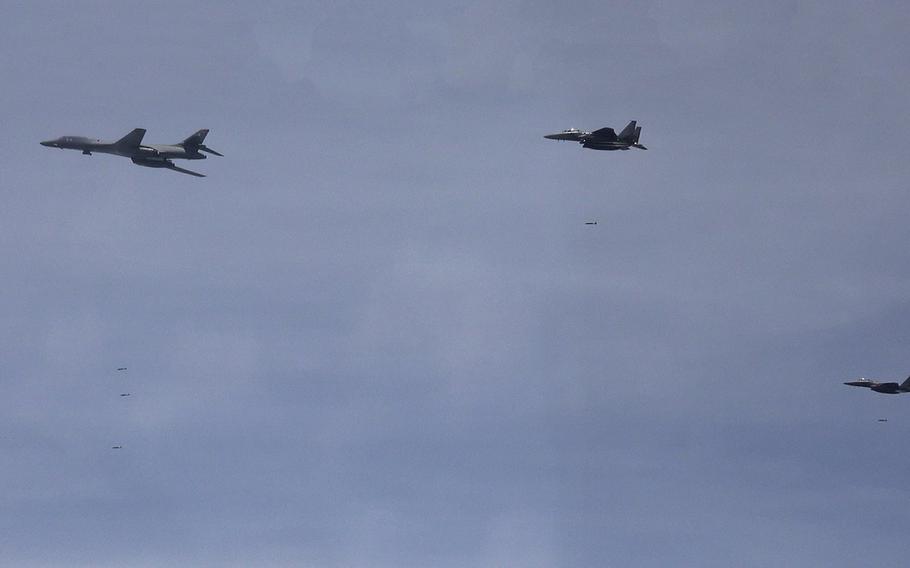(VIDEO) Watch the American B-1B Lancer Strategic Bomber Drops JDAM Bombs
(VIDEO) A U.S. Air Force B-1B Lancer strategic bomber deployed 500-pound (226 kg) JDAM bombs on targets at the Pilsung Range, located approximately 100 miles south of the capital city, Seoul.
(DEFENCE SECURITY ASIA) — A U.S. Air Force B-1B Lancer strategic bomber demonstrated precision in dropping several JDAM smart bombs during a military exercise in South Korea.
This marks the first instance in seven years that the strategic bomber has dropped bombs during military training in the East Asian country.
The bomber was accompanied by two South Korean Air Force F-15K, F-35A, and F-16 fighters, as well as U.S. Marine Corps F-35B and U.S. Air Force F-16 aircraft, according to a statement by the Republic of Korea Air Force (ROKAF).
Together, these aircraft dropped 500-pound JDAM bombs on targets at the Pilsung Range, approximately 100 miles south of Seoul.
The exercise underscored the deterrent capabilities of South Korea and the U.S. against North Korea and demonstrated the allied nations’ ability to respond to any provocations by Pyongyang, the South Korean Ministry of Defense stated.
The B-1B Lancer flew from Andersen Air Force Base in Guam to participate in the training in South Korea.
This operation is part of a Bomber Task Force (BTF) mission, projecting U.S. air power in the region.
The appearance of the B-1B Lancer in today’s exercise is the second time this year that a U.S. strategic bomber has operated in the East Asian nation.
This event occurred nearly a week after North Korea launched short-range missiles towards the Sea of Japan, also known as the East Sea, which traveled around 217 miles before landing in the water.
This was North Korea’s sixth missile test this year.
In April, two B-52 Stratofortress bombers, escorted by ROKAF and Japanese Air Self-Defense Force fighters, flew over Jeju Island, South Korea.

Last December, a strategic B-1B Lancer flight along with South Korean and Japanese fighter jets near Jeju Island was seen as a “show of strength.”
Such displays of combat aircraft from the U.S., South Korea, and Japan in December occurred just three days after North Korea’s launch of the intercontinental ballistic missile (ICBM) “Hwasong-18,” with the South Korean Ministry of Defense affirming the flights demonstrated resolve and capability to counter North Korean threats. — DSA



Comments are closed.